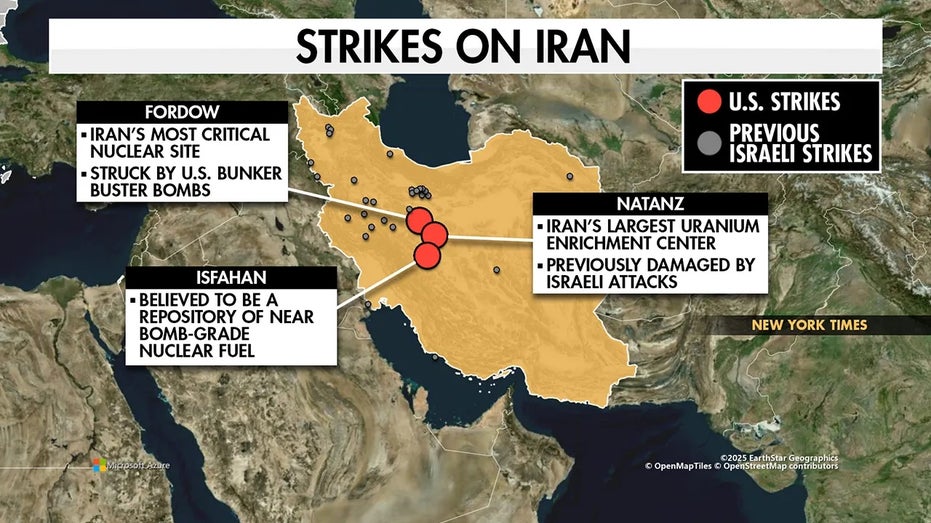

Iran threatened to attempt to close one of the world's most important shipping lanes for oil in response to the U.S. joining Israel in attacking Iranian nuclear facilities, but U.S. energy production would limit the impact of such a move on the American economy.
Iranian state media suggested the country's parliament approved a potential plan that would see Iran's military attempt to close the Strait of Hormuz using sea mines, anti-ship missiles or other measures in pursuit of that goal. The Trump administration announced on Monday a potential ceasefire between Israel and Iran, which could bring the conflict to a halt after 12 days of strikes.
About one-fifth of the world's daily consumption of oil moves through the Strait of Hormuz every day on tankers, and with the straight less than 30 miles across, shipping traffic would be vulnerable to potential threats from Iran. Additionally, about one-fifth of the global liquefied natural gas trade also went through the Strait of Hormuz in 2024, according to the Energy Information Administration (EIA).
Amid the potential threats to energy supplies in the Strait of Hormuz, domestic energy production in the U.S. has helped reduce the reliance of the American economy on energy sourced from the Middle East, insulating it from prospective price shocks and potential worst-case scenarios in which surging oil prices could stifle the economy.

Iran's military has threatened to close the Strait of Hormuz in times of regional tensions over the years. (Photo by Morteza Nikoubazl/NurPhoto via Getty Images / Getty Images)
"The doomsday scenario, like if you shut down oil [shipments] in the Strait of Hormuz, predictions that go up to $100 a barrel might be true in a world where you could actually shut down the Strait of Hormuz," Phil Flynn, a senior market analyst at the Price Futures Group and FOX Business contributor, said in an interview.
"Right now, I don't think that the market believes that that's possible," Flynn said. "Iran probably won't have the ability to shut down the Strait of Hormuz. If they were able to shut it down for a measurable amount of time, it could have a major impact. But I think this exercise that we just went through shows it's less likely they'll be able to shut it down."

The U.S. military carried out strikes against Iranian nuclear facilities on June 21, 2025. (Fox News / Fox News)
Flynn went on to say that U.S. energy production has risen over the last decade and now produces more than it consumes – a stark contrast to the past when the U.S. relied heavily on energy from the Middle East.
"The U.S. is producing a record amount of oil," Flynn said, noting that during the Islamic Revolution and Iranian hostage crisis in 1979, the U.S. was much more dependent on oil from the Middle East. "At that time, had they shut down the Strait of Hormuz, it would have been a devastating blow not only to our economy, but the global economy."

The Strait of Hormuz is an important chokepoint for global energy supplies. (Reuters/Hamad I Mohammed / Reuters)
"Here we are years later and even though it's significant – we're still seeing 20% of the global supply go through the Strait of Hormuz on a daily basis – it's not nearly as large as it once was, and the U.S. is not as dependent on it as we were. In fact, a lot of that oil is going to China, which is very dependent on supplies going through the Strait of Hormuz," Flynn said.
Data from the EIA shows that in 2024, the U.S. exported a record-high 30.9 quadrillion British thermal units, an increase of 4% from the prior year, while energy imports were flat at 21.7 quads. That left the U.S. with net exports of 9.3 quads – the highest recorded level of net exports in the agency's records dating back to 1949.
"The buffer that we've built because of the U.S. energy production has changed some of those doomsday scenarios. You can't underplay the possibility that if the strait did get shut down, it would cause a major price spike," he said. "Now, it's getting harder to imagine a scenario where that's going to be possible for an extended period of time."
